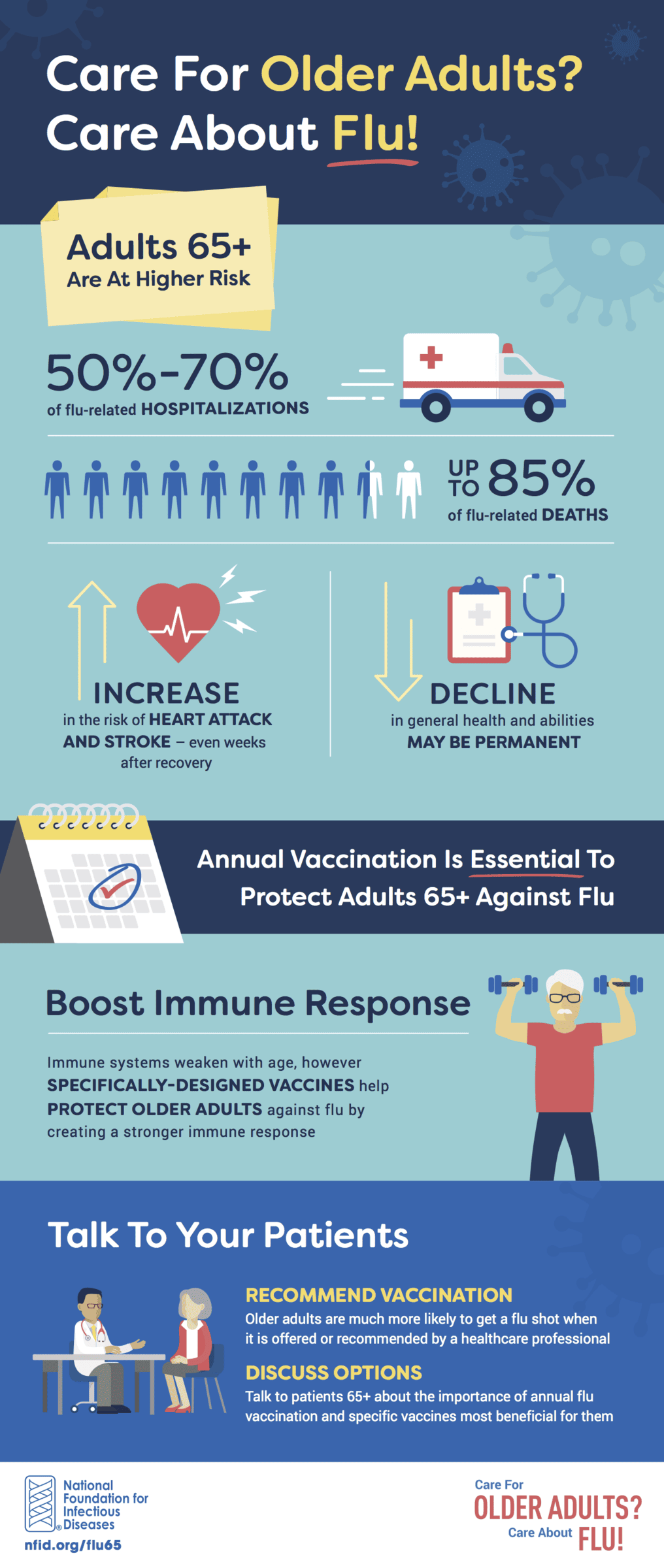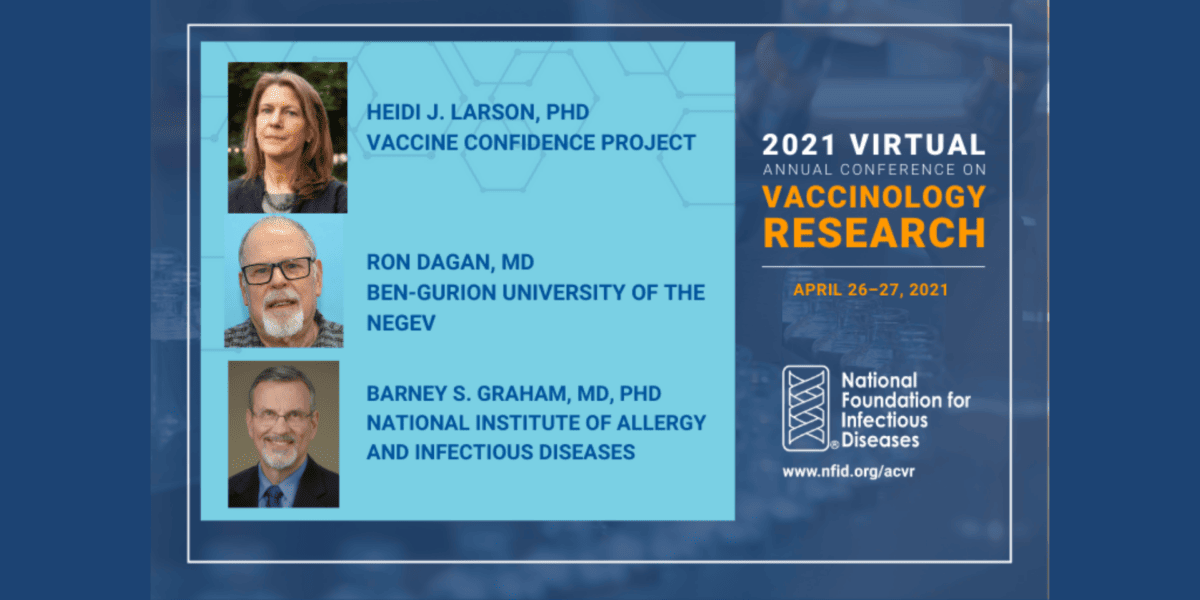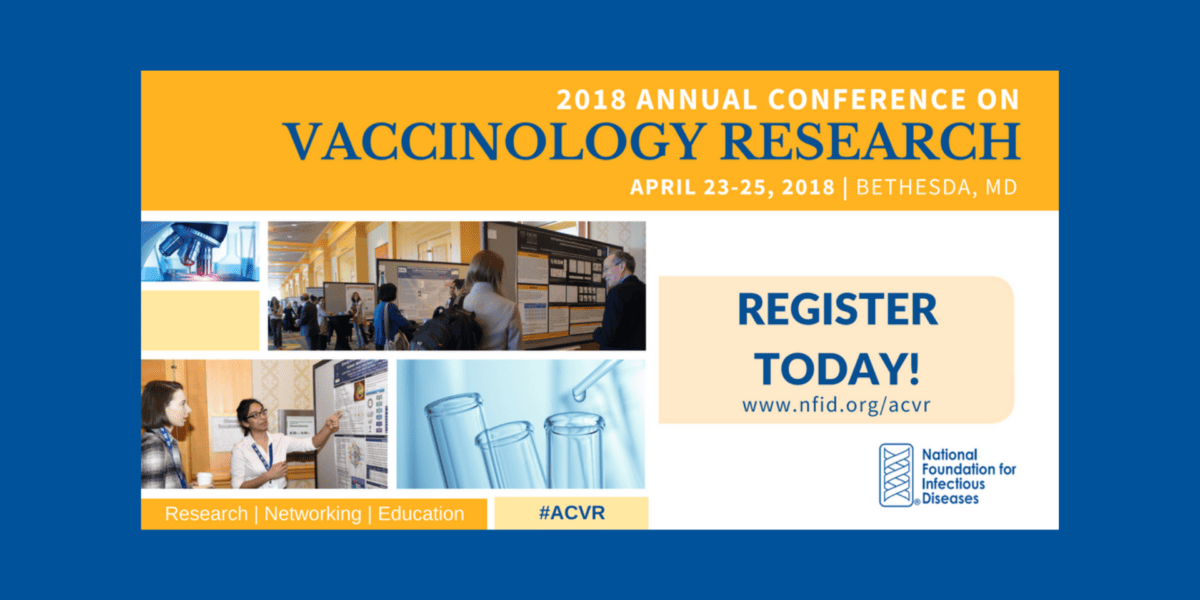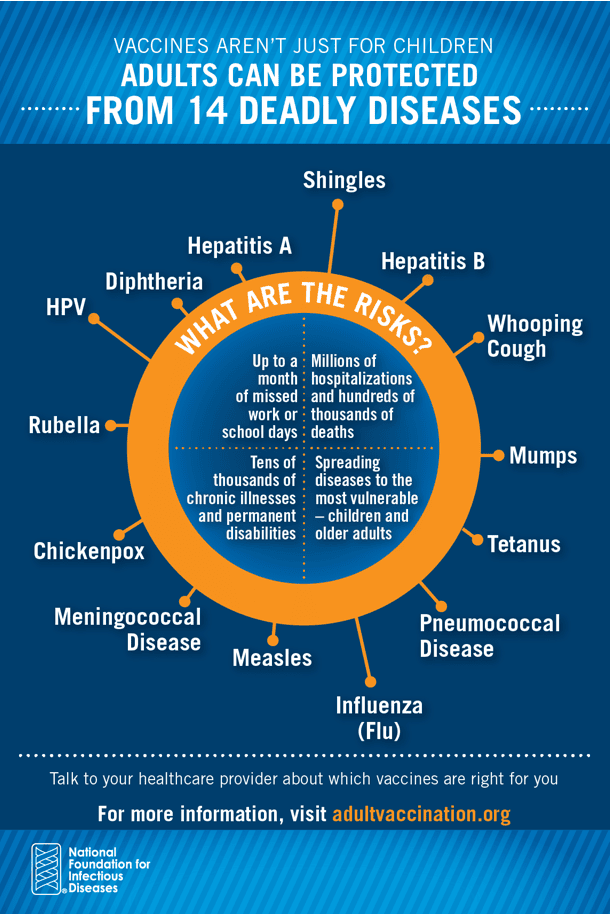
Originally posted by the Adult Vaccine Access Coalition (AVAC)
 Wilbur Chen, MD, MS, is Associate Professor of Medicine and Chief of the Adult Clinical Studies Section, Center for Vaccine Development, University of Maryland School of Medicine, as well as a frequent speaker for NFID on adult vaccines as well as travel vaccines. He will be presenting at the NFID 2018 Annual Conference on Vaccinology Research on April 24, 2018 on a Phase 1 Study of a Pentavalent Meningococcal Conjugate Vaccine (ACYWX).
Wilbur Chen, MD, MS, is Associate Professor of Medicine and Chief of the Adult Clinical Studies Section, Center for Vaccine Development, University of Maryland School of Medicine, as well as a frequent speaker for NFID on adult vaccines as well as travel vaccines. He will be presenting at the NFID 2018 Annual Conference on Vaccinology Research on April 24, 2018 on a Phase 1 Study of a Pentavalent Meningococcal Conjugate Vaccine (ACYWX).
By 2030, the number of adults age 65 years and older in the United States is expected to grow to 71 million—at least 20 percent of the total population. It is particularly important during this stage of life to maintain healthy lifestyles and habits. Receiving recommended immunizations is an essential part of that process.
Wilbur Chen, MD, MS, has dedicated his knowledge, research, and expertise to developing improved vaccines for the elderly. As a board-certified infectious disease physician, a Fellow of the American College of Physicians and the Infectious Diseases Society of America, he understands that we must prioritize the healthcare needs of this rapidly growing segment of the population.
As we get older, we become more susceptible to severe consequences of vaccine-preventable diseases. One reason is “immunosenescence” or the weakening of the immune system over time. When that happens, those age 65 years and older are at greater risk of developing certain infections. That makes it an even greater imperative to ensure that the elderly receive all recommended vaccines, such as flu, pneumococcal, and shingles. Unfortunately, vaccination rates among this segment of the population are not nearly as high as they could or should be.
For example, the flu vaccine not only helps prevent flu, but also reduces rates of hospitalization, cardiovascular events, and premature death. However, one-third of older adults do not receive it annually as recommended. Seventy percent of older adults don’t get vaccinated against shingles, even though the vaccine is proven to either prevent the disease or reduce time and suffering for the one-in-three adults who do get shingles. Eighty percent of adults don’t get vaccinated against pneumococcal pneumonia, even though 175,000 people are hospitalized with it annually.
So how can we improve these numbers? Dr. Chen recommends a multi-faceted approach:
- Increase awareness of available vaccines, particularly among older adults
- Mobilize healthcare professionals to encourage patients to receive recommended vaccines
- Create a research agenda to develop new and better vaccines for older adults
- Institute a global call for immunizations across the lifespan (World Health Organization, Global Vaccine Action Plan)
- Promote the benefits of community protection (“herd immunity”) as well as the benefits of pediatric immunization
Committed and qualified scientists and doctors like Dr. Chen have dedicated their careers to improving the health of older adults, and they know that recommended vaccines are a critical part of that equation. By following their lead, we can make great strides toward ensuring good health across the lifespan.
Dr. Chen’s research is actively engaged in developing improved vaccines for older adults, such as using novel adjuvants (ingredients that can help to boost the immune response to vaccines). He is currently working with the National Institutes of Health to evaluate candidate avian influenza (bird flu) vaccines, since they are highly likely to represent the next pandemic.

Additional information on recommended vaccines for older adults, including a Shingles Awareness Toolkit and Pneumococcal Vaccination Resources are available at www.adultvaccination.org. The NFID toolkit, Care For Older Adults? Care About Flu!, is designed to help healthcare professionals talk to patients 65+ about the importance of annual flu vaccination and specific vaccines most beneficial for them.
To join the conversation, follow NFID (@NFIDvaccines) and AVAC (@AVACNow) on Twitter, like NFID and AVAC on Facebook, follow NFID on Instagram, join the NFID Linkedin Group, and subscribe to NFID Updates.
Related Posts

What Have We Learned from COVID-19?
During World Immunization Week, NFID will host the virtual 2021 Annual Conference on Vaccinology Research (ACVR) on April 26-27, 2021, with presentations from leaders in the field of vaccinology, including three keynote lectures on the implications of the COVID-19 pandemic. Read more about the changes and challenges these renowned experts have seen throughout their remarkable careers …

A Forum for Cutting-Edge Vaccine Research Updates
The field of vaccinology continues to expand and innovate in basic science discovery, product development, market introduction, and adoption into immunization programs. Continual achievements are moving the field forward, with the expectation that many current, challenging diseases may become vaccine-preventable or vaccine-treatable in the near future…

Vaccine Predictions for 2027
Special thanks to Karie Youngdahl for this blog post from The History of Vaccines on vaccinology predictions presented at the 20th Annual Conference on Vaccine Research (ACVR) held in Bethesda, MD last month…

